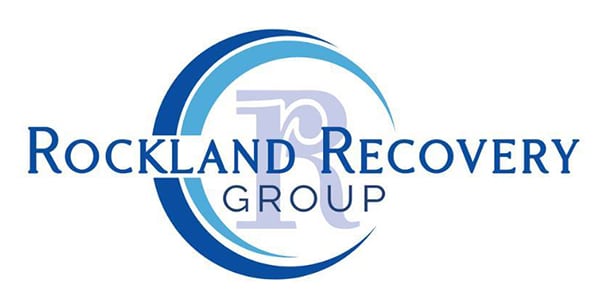Understanding the complexities of bipolar disorder is key to effective treatment. At Rockland Recovery, we recognize the unique challenges that come with this condition. We are dedicated to providing treatment that is not only compassionate and effective but also tailored to fit your lifestyle. We aim to support you in managing your symptoms and enhancing your quality of life.
Jump to Section
Understanding The Symptoms and Management of Bipolar Disorder
Bipolar disorder, formerly known as manic depression, is marked by dramatic mood swings. Individuals with this condition undergo periods of intense “highs,” or mania. During these phases, they may exhibit boundless energy, overwhelming euphoria, or an intense enthusiasm for life. It is not uncommon for those experiencing mania to be noted for their magnetic personalities due to their high level of excitability.
On the other end of the emotional spectrum lies depression. Someone with bipolar disorder might feel lively and cheerful one day, only to suddenly shift to a state of depression without any apparent cause. This phase is characterized by feelings of hopelessness, diminished self-esteem, and a tendency to withdraw socially.
Bipolar disorder can emerge at any age but is most frequently diagnosed in young adults. While some individuals may find their symptoms diminish over time, others may need ongoing management throughout their lives. At Rockland Recovery, we are dedicated to helping you manage bipolar disorder effectively, using a compassionate approach and evidence-based therapies, ensuring a fulfilling life despite the challenges of the condition.
If you or someone you care about is experiencing mental health concerns, do not hesitate to contact Rockland Recovery at 888-299-4833. Our dedicated staff is available 24/7 to answer your questions, provide guidance, and ensure you receive the necessary care.
Additionally, the Substance Abuse and Mental Health Services Administration (SAMHSA) is an invaluable resource for those dealing with mental health and substance abuse issues. You can find mental health services nearby using their online provider directory, or you can directly speak with a professional by calling their 24-hour National Helpline at 1-800-662-HELP (4357).
The Different Types of Bipolar Disorder
At Rockland Recovery, our initial step in assisting someone with bipolar disorder is conducting a comprehensive assessment to accurately understand their specific mental health challenges. There are three primary types of bipolar disorder, each requiring a tailored approach to treatment.
Bipolar I Disorder
This form represents the most intense severity of the disorder, characterized by extreme manic episodes followed by major depressive episodes. Individuals with Bipolar I Disorder often benefit significantly from immediate intervention. Treatment typically involves inpatient care or partial hospitalization to manage these severe swings effectively.
Bipolar II Disorder
Less severe than Bipolar I, this type involves milder episodes of mania, known as hypomania, interspersed with prolonged periods of depression. Although the manic episodes are less intense, the depressive phases can greatly affect a person’s daily life. Treatment options like partial hospitalization or intensive outpatient programs are often recommended for managing Bipolar II Disorder.
Cyclothymic Disorder
This is the mildest form of bipolar disorder, characterized by chronic fluctuations between hypomania and mild depression. These symptoms are less severe and do not fully meet the criteria for Bipolar I or II. Individuals with Cyclothymic Disorder may benefit most from outpatient treatment, including talk therapy and strategies to manage symptoms.
Comprehensive Bipolar Disorder Treatment at Rockland Recovery
At Rockland Recovery, we prioritize a flexible and holistic approach to treating bipolar disorder, ensuring that our methods integrate seamlessly into your daily life. We recognize that each individual has a unique background and set of circumstances, deserving a personalized treatment plan tailored specifically to them.
A cornerstone of our treatment program is Trauma-Informed Therapy. Recognizing that past trauma often plays a significant role in the mental health of those with bipolar disorder, this therapy focuses on healing and moving beyond such traumatic experiences.
Additionally, we utilize a range of evidence-based therapies to address bipolar disorder effectively. These therapies include Cognitive Behavioral Therapy (CBT), Dialectical Behavior Therapy (DBT), Acceptance and Commitment Therapy (ACT), Internal Family Systems (IFS), and Narrative Therapy.
Our commitment extends beyond merely selecting a therapy type; we also consider the appropriate intensity and duration of treatment for each individual. To accommodate varying needs, we offer a spectrum of treatment options, from partial hospitalization and intensive outpatient programs to traditional outpatient care and ongoing support. This comprehensive approach ensures that each person receives the most effective treatment for their specific situation.
Your Bipolar Treatment Center at Rockland Recovery
Bipolar disorder is a challenging and complex mental health disorder that requires treatment. You or your loved one can live a life that isn’t defined by this mental illness, and it begins with reaching out to Rockland Recovery.
Our bipolar treatment in Massachusetts is compassionate, tailored to the individual, and built on evidence-based therapies from our experts in the field of mental health. Contact Rockland Recovery at 888-299-4833 and speak to one of our care coordinators today.



